Programme Notes

Vienna: from Mozart to Webern
Sun 26 May 2024 • 14.15


Vienna: from Mozart to Webern
Sun 26 May 2024 • 14.15
conductor Bertie Baigent
soprano Chen Reiss
Wolfgang Amadeus Mozart (1756–1791) Overture Idomeneo (1780)
Alban Berg (1885–1935)
Sieben Frühe Lieder (1905–08, orch. 1927–28)
• Nacht (Hauptmann)
• Schilflied (Lenau)
• Die Nachtigall (Storm)
• Traumgekrönt (Rilke)
• Im Zimmer (Schlaf)
• Liebesode (Hartleben)
• Sommertage (Hohenberg)
Johann Sebastian Bach (1685–1750)
From: Musikalisches Opfer, BWV 1079 (1747)
• Ricercar a sei voci
Arranged for orchestra by Anton Webern (1935)
intermission
Erich Wolfgang Korngold (1897–1957)
From: Einfache Lieder, op. 9 (1911–13, orch. 1917)
• Nr. 1: Schneeglöckchen (Eichendorff)
• Nr. 3: Das Ständchen (Eichendorff)
• Nr. 4: Liebesbriefchen (Honold)
• Nr. 6: Sommer (Trebitsch)
Wolfgang Amadeus Mozart
Symphony No. 40 in G minor, K 550 (1788)
• Molto allegro
• Andante
• Menuetto. Allegretto
• Finale. Allegro assai
Concert ends at around 21.45
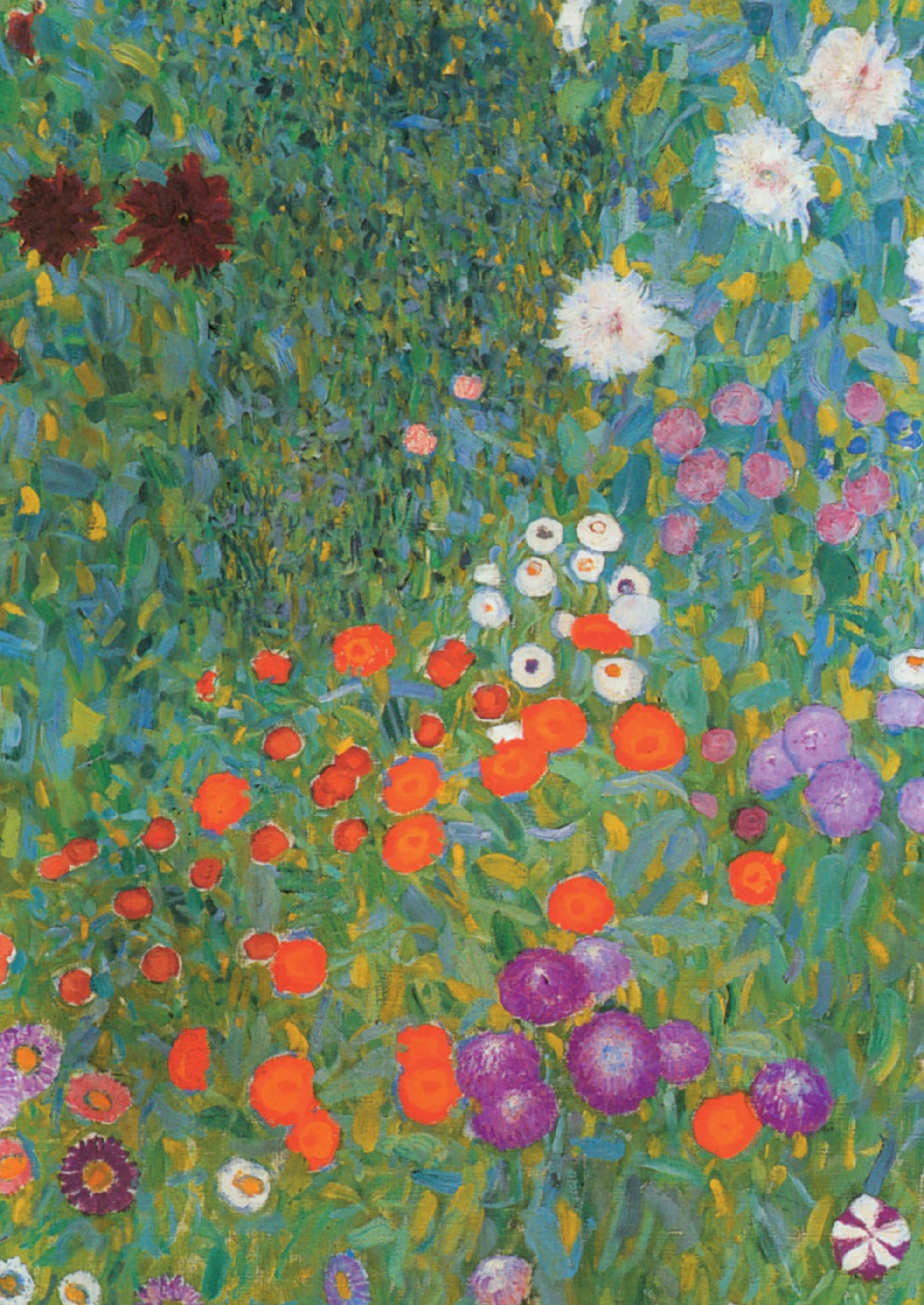
Cover: Photo Nik Shuliahin (Unsplash)
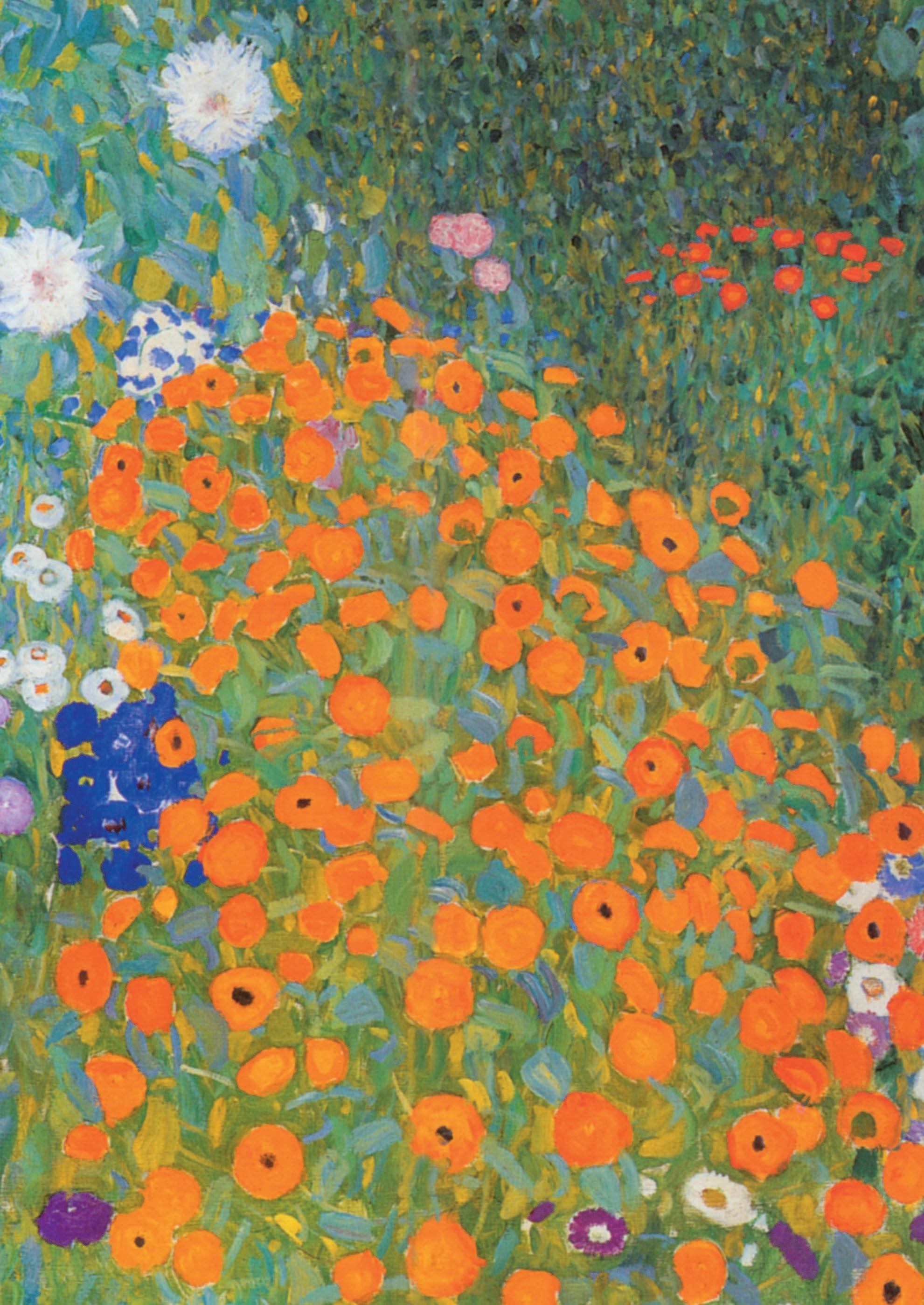
Most recent performances by our orchestra:
Mozart Overture Idomeneo: Mar 2007, conductor Pedro Halffter
Berg Sieben frühe Lieder: Oct 205, soprano Sally Matthews, conductor Robin Ticciati
Bach/Webern Ricercar a 6: May 2012, conductor Yannick Nézet-Séguin
Korngold Einfache Lieder: first performance
Mozart Symphony No. 40: Sep 2015, conductor Jiří Bělohlávek
One hour before the start of the concert, Bart de Graaf will give an introduction (in Dutch) to the programme, admission €5. Tickets are available at the hall, payment by debit card. The introduction is free for Vrienden.
Cottage Garden. Painting by Gustav Klimt (1907)Vienna, a city of imperial grandeur. A city that in the eighteenth century boasted a wealthy aristocracy and an emerging prosperous bourgeoisie that acted like a magnet to draw in composers such as Mozart, and later Beethoven. Here they sought their fame and fortune, although not all the streets were paved in gold.
By around 1800 Vienna was a decadent city and one of contradictions: a place of great wealth and terrible poverty, where revolutionary zeal bubbled just beneath the surface. A city of cheerful taverns with all their temptations. Of deprived neighbourhoods, where folk music flourished and fed the imagination of a composer like Franz Schubert, who would rework the music into majestic lieder. All of this energy saw the city grow throughout the nineteenth century into an unparalleled hotbed for culture and learning. It was here where Sigmund Freud developed his groundbreaking theories in psychotherapy; where the paintings of Egon Schiele and Gustav Klimt heralded the start of the twentieth century; where the symphonies of Gustav Mahler put increasing pressure on traditional tonality; and where Arnold Schönberg - ultimately with his students Anton Webern and Alban Berg – cast out the sacred cows of this inherited classical style, without abandoning the basis of this tradition entirely.
Mozart
A key figure in the Viennese tradition is Wolfgang Amadeus Mozart. In Vienna he composed his best work. Whilst in the Overture to his opera Idomeneo we still hear
the young Mozart growing up in Salzburg, in his penultimate symphony, No. 40 in G minor, we hear the experience of a man of the world. A symphony composed during a turbulent period in Mozart’s life, in which he endured the loss of a child and the illness of his wife. A symphony whose first movement abandons the normal optimism of the composer and instead sheds quiet tears. Although during these months this symphony was book-ended by a cheerful Symphony No. 39, and by his great Jupiter symphony – his 41st and last – it seems that in this masterpiece he created space for his sadness. And with remarkable results: at one point in the last movement Mozart seems so disorientated that within the space of a couple of bars he uses as many as eleven notes of the chromatic scale like an Alban Berg of his time, leaving the listener complexly perplexed.
Webern and Bach
It is that melancholy and disturbance, mingled with the unrivalled spirit of creative optimism, that broadly characterises Viennese music. The start of the twentieth century ushered in a burning desire for the uncensored expression of the human spirit. Poets and composers sought to express the extremes of human experience; from
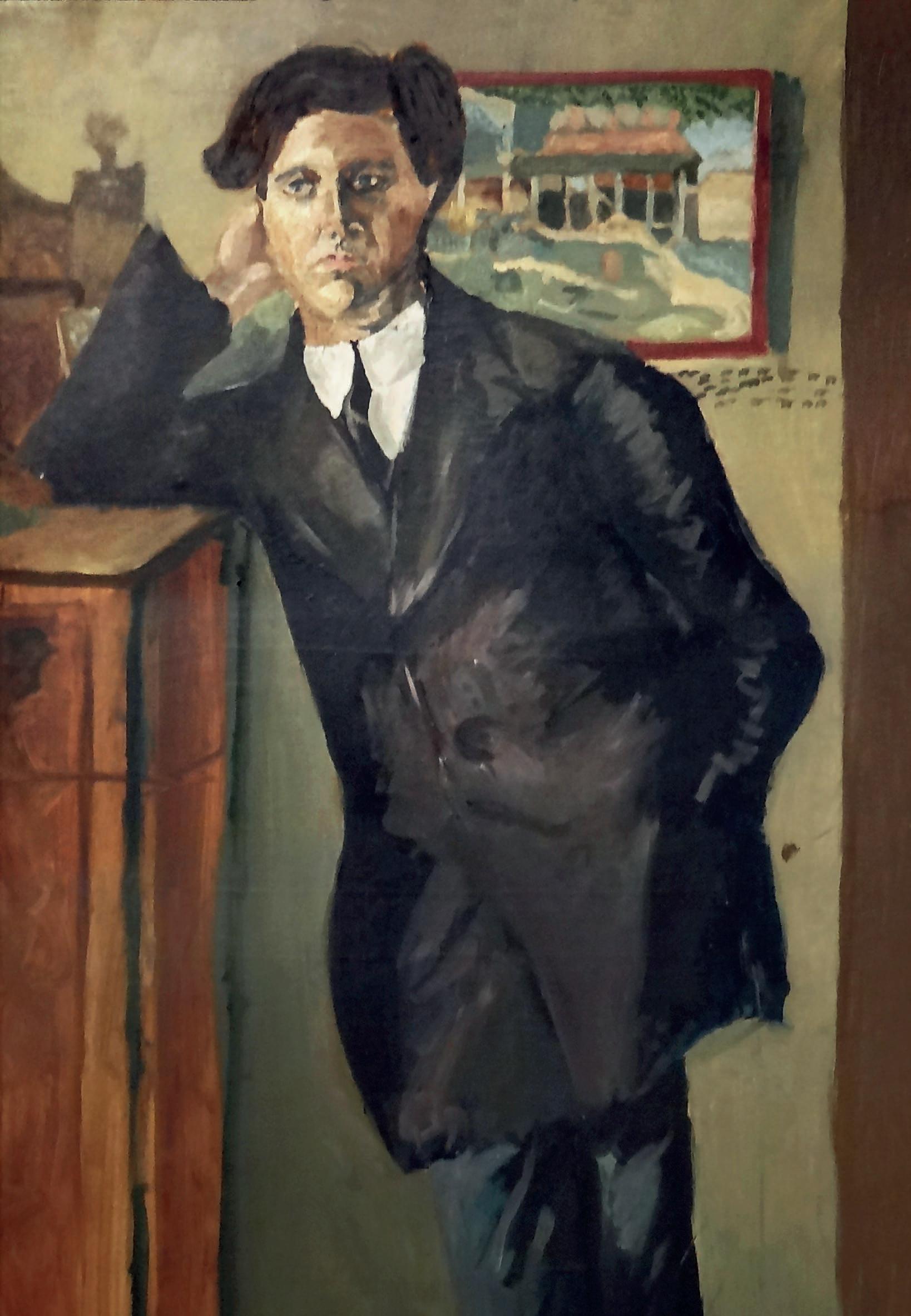 Alban Berg. Portret by Arnold Schönberg (1910)
Alban Berg. Portret by Arnold Schönberg (1910)
eroticism, the dream world and pure ecstasy to angst, death, and the darkest corners of misery. And in particular it led the circle of Arnold Schönberg, Alban Berg, and Anton Webern to a more sultry romanticism and the discovery of a musical language, gradually tearing the rules of classical tonality at the seams in their pursuit of pure expressionism. Even Webern’s orchestration of Bach’s Ricercar a 6 from the Musical Offering cannot escape this Viennese brooding, even though the composer did not change a note of the German master’s composition. Underlying this orchestration, dating from 1934-1935, Webern’s aim was to make Bach’s music more comprehensible to the listener by, in his own words, ‘exposing the relationships between the motifs’. He amply succeeded, and in the process imprinted on the score his own Viennese colour pallet.
Alban Berg’s Sieben frühe Lieder, composed between 1905 and 1908 as a student of Arnold Schönberg, is also imbued with the Viennese spirit. Berg originally wrote the lieder for voice and piano, and dedicated them to Helene Nahowski, a singer he first met in 1907 and later married. The manuscript would not be published for another 20 years. Indeed, the orchestral version that Berg wrote during the same period would not be printed until 1959. The Sieben frühe Lieder must have seemed like a musical time capsule on their publication in 1928. Berg, following in the footsteps of his teacher Schönberg, had earned a reputation as an avant-garde composer; these youthful works sound like a message from a completely different era. Starting out with the warm musical language of someone like Mahler
they can be listened to as a reminiscence of everything that Vienna once was. Nevertheless, they also point to what lies close ahead. This is music on the threshold of a new era: into the late romantic idiom is already planted the seed of expressionism.
Like an Alban Berg of his time, Mozart leaves the listener complexly perplexed
The most Viennese music of all, however, are the six Einfache Lieder op. 9 of Erich Wolfgang Korngold, of which four will be performed in this concert. These are songs of nostalgia, melancholy, and beauty, with no suggestion of faded glory. This is hardly surprising, given that Korngold was only 14 years old when he began composing these lieder. Yet despite his youth, Korngold was already able to achieve a synthesis between the lyricism of Mozart, the emotion of Schubert and the psychological depth of Mahler. Not for nothing did Mahler proclaim the young boy as ‘the new Mozart’. How Korngold would have developed his style in the musical world of Vienna in later years we will sadly never know. Escaping the growing Nazi threat in the early thirties, the Austrian composer emigrated to the United States, where he would become one of the founders of the ‘school’ of Hollywood film music. A sound that lives on to this day in many blockbusters; a sound that in essence expresses a longing for the romantic Vienna, a city to which Korngold would never return.
Paul Janssen
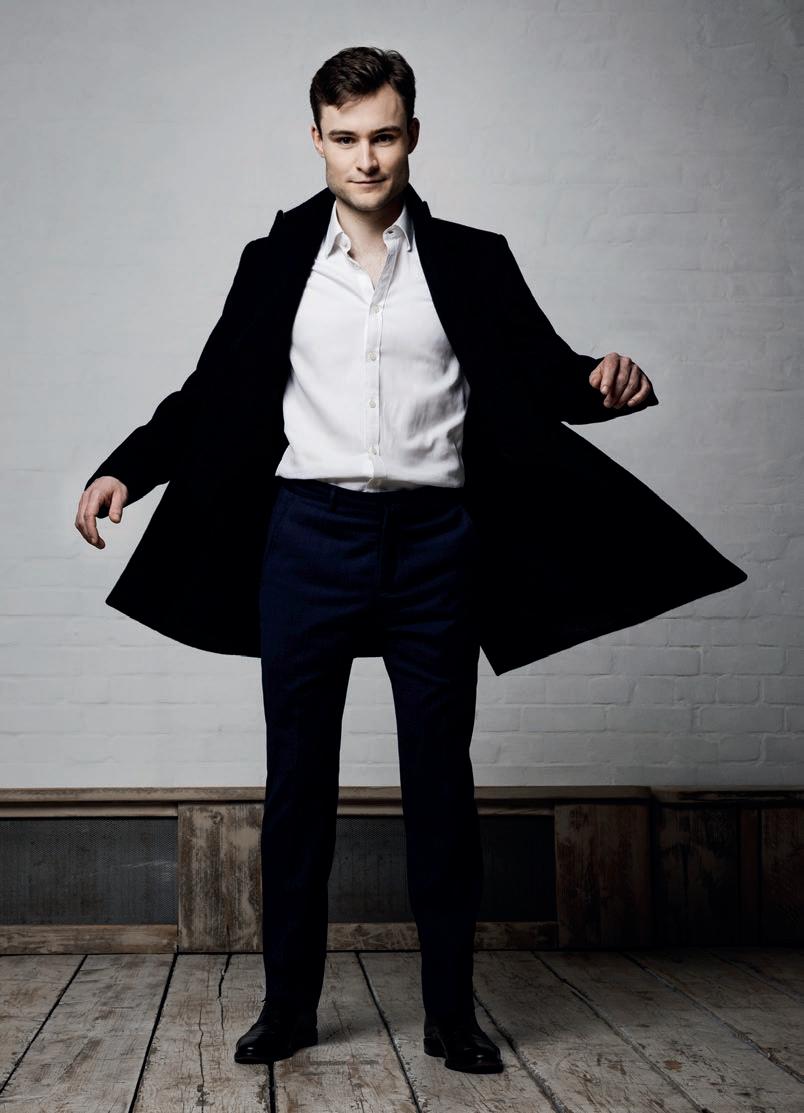
Born: Oxford, England
Education: music and organ at Cambridge University, conducting with Sian Edwards at the Royal Academy of Music, London Awards: Orchestra Prize Tokyo International Conducting Competition 2021, Grand Prix
International Conducting Competition Rotterdam 2022
Subsequently: London Philharmonic Orchestra, Detroit Symphony Orchestra, City of Birmingham Symphony Orchestra, Royal Scottish National Orchestra, Orchestra of the Eighteenth Century, New Japan Philharmonic, Bruckner Orchester Linz, Phion
As a composer: Stainer and Bell Award 2015, BBC Inspire Competition 2013, NCEM Young Composers Award, performances by Orchestra of the Royal Opera House conducted by Antonio Pappano, Aurora Orchestra, Fretwork Debut Rotterdam Philharmonic: 2022
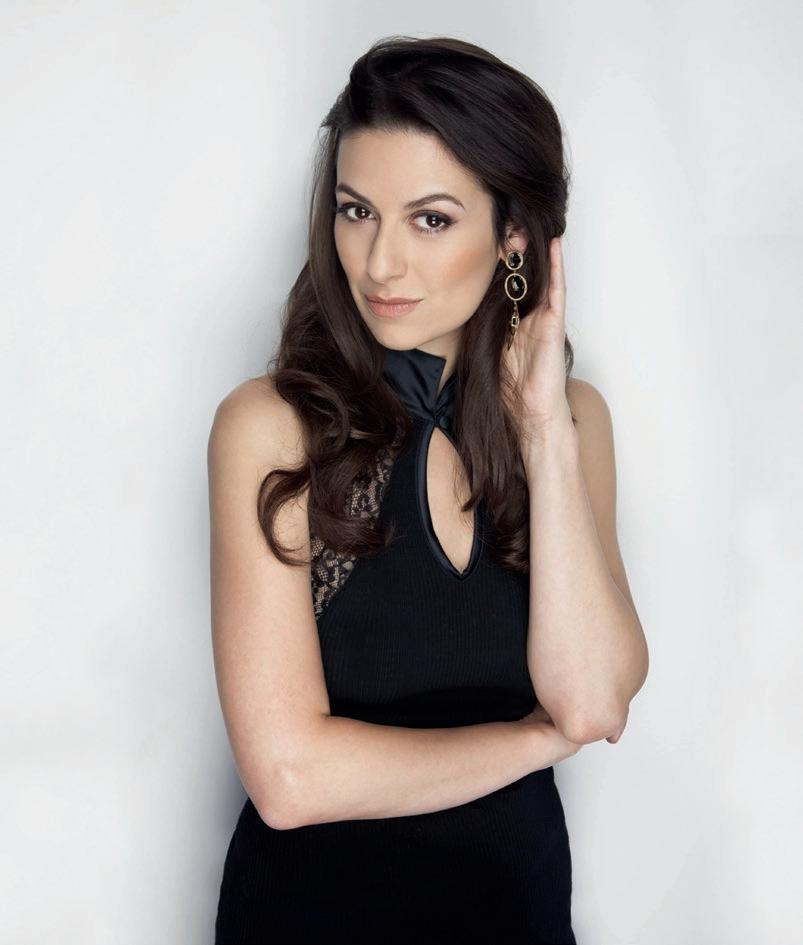
Born: Herzliya, Israel
Education: piano from age five, first singing lessons at fourteen
Debut: member of the ensemble of the Bavarian State Opera
Solo appearances: Gewandhausorchester Leipzig, Berliner Philharmoniker, Wiener Philharmoniker, Royal Concertgebouw Orchestra, Chicago Symphony, Philharmonia Orchestra, Orchestre de Paris
Opera: Wiener Staatsoper, Royal Opera House
Covent Garden, Teatro alla Scala, Semperoper Dresden, Deutsche Oper Berlin, Dutch National Opera, Wiener Festwochen, Maggio Musicale
Fiorentino, Opera Company of Philadelphia, Israeli Opera
Roles: Sophie/Rosenkavalier, Gretel/Hänsel und Gretel, Pamina/Zauberflöte, Zerlina/ Don Giovanni, Gilda/Rigoletto, Liu/Turandot, Ginevra/Ariodante
Recitals: with pianists Charles Spencer and Alexander Schmalcz
Debut Rotterdam Philharmonic: 2023
Photo: Ben Ealovega Photo: Paul Marc MitchellStar Wars: A New Hope in Concert
Fri 31 May 2024 • 20.00
Sat 1 June 2024 • 20.00
Rotterdam, Ahoy – RTM Stage
Williams Star Wars: A New Hope
Music for Breakfast 5
Sun 2 June 2024 • 10.30
Jurriaanse Zaal, de Doelen
violin Roman Spitzer and Martine Velthuis
viola Anne Huser
cello Pepijn Meeuws
piano Maria Meerovitch
Rachmaninoff Trio élégiaque No. 1
Dvořák Piano Quintet No. 2
Thu 6 June 2024 • 20.15
Fri 7 June 2024 • 20.15
Sun 9 June 2024 • 14.15
conductor Lahav Shani
cello Emanuele Silvestri
viola Roman Spitzer
Boulanger D’un soir triste
Prokofiev Piano Concerto No. 3
Strauss Don Quixote
Fri 14 June 2024 • 19.45
conductor Tarmo Peltokoski
trombone Jörgen van Rijen
López Bellido Shift, Trombone Concerto
Shostakovich Symphony No.10
Fri 13 Sep 2024 • 20.15
Sun 15 sep 2024 • 14.15
conductor Valentin Uryupin
clarinet Paul Meyer
Mozart Clarinet Concerto
Smetana My Fatherland
Chief Conductor
Lahav Shani
Honorary
Conductor
Viola
Anne Huser
Roman Spitzer
Galahad Samson
José Moura Nunes
Yannick Nézet-Séguin
Principal Guest Conductor
Tarmo Peltokoski
First Violin
Marieke Blankestijn, concertmeester
Quirine Scheffers
Hed Yaron Meyerson
Saskia Otto
Arno Bons
Mireille van der Wart
Rachel Browne
Maria Dingjan
Marie-José Schrijner
Noëmi Bodden
Petra Visser
Sophia Torrenga
Hadewijch Hofland
Annerien Stuker
Alexandra van Beveren
Second Violin
Charlotte Potgieter
Cecilia Ziano
Frank de Groot
Laurens van Vliet
Tomoko Hara
Elina Staphorsius
Jun Yi Dou
Bob Bruyn
Eefje Habraken
Maija Reinikainen
Wim Ruitenbeek
Babette van den Berg
Melanie Broers
Lana Trimmer
Kerstin Bonk
Lex Prummel
Janine Baller
Francis Saunders
Veronika Lénártová
Rosalinde Kluck
León van den Berg
Olfje van der Klein
Cello
Emanuele Silvestri
Eugene Lifschitz
Joanna Pachucka
Daniel Petrovitsch
Mario Rio
Gé van Leeuwen
Eelco Beinema
Carla Schrijner
Pepijn Meeuws
Yi-Ting Fang
Double Bass
Matthew Midgley
Ying Lai Green
Jonathan Focquaert
Robert Franenberg
Harke Wiersma
Arjen Leendertz
Ricardo Neto
Flute
Juliette Hurel
Joséphine Olech
Flute/piccolo
Beatriz Da Baião
Oboe
Remco de Vries
Karel Schoofs
Anja van der Maten
Oboe/Cor Anglais
Ron Tijhuis
Clarinet
Julien Hervé
Bruno Bonansea
Clarinet/ Bass Clarinet
Romke-Jan Wijmenga
Bassoon
Pieter Nuytten
Lola Descours
Marianne Prommel
Bassoon/ Contrabassoon
Hans Wisse
Horn
David Fernández Alonso
Felipe Santos Freitas Silva
Wendy Leliveld
Richard Speetjens
Laurens Otto
Pierre Buizer
Trumpet
Alex Elia
Simon Wierenga
Jos Verspagen
Trombone
Pierre Volders
Alexander Verbeek
Remko de Jager
Bass trombone
Rommert Groenhof
Tuba
Hendrik-Jan Renes
Percussion
Danny van de Wal
Ronald Ent
Martijn Boom
Adriaan Feyaerts
Harp
Charlotte Sprenkels